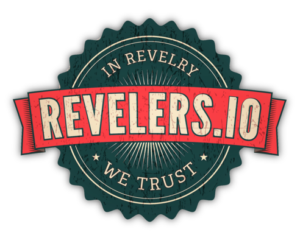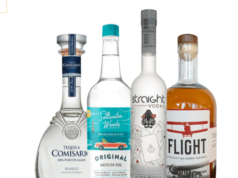The FDA is Coming… Implications for CBD Marketing After the 2018 Farm Bill (Dope Magazine).
There is little doubt that CBD is the hottest buzzword around. With Walgreens, Martha Stewart and even Kim Kardashian getting in line to promote a “miracle” CBD product, it’s projected that the market for CBD could reach $1.3 billion by 2022. Despite all of the noise, there remains a significant education gap surrounding not only what CBD is and how to use it, but also how CBD products are legally regulated. In summary, they’re not … yet.
What the Farm Bill Does and Does Not Mean
Hemp Business Journal projects that the United States hemp industry will grow at a rate of 233% this year, up from $390 million in 2018. With this kind of capital on the line, it’s no wonder that CBD operators are willing to run the risk of regulatory backlash to capitalize on the outsized growth and high returns being realized in the short term.
These market projections and celebrity endorsements make information about the legal status of hemp much harder to find. On December 12, 2018, the federal government passed the 2018 Farm Bill. It was celebrated as a victory for cannabis regulations, but what is most important about the farm bill is what it doesn’t regulate.
“Businesses may be willing to sell CBD despite the legal risk because the 2018 Farm Bill made it clear hemp isn’t marijuana,” said Daniel Shortt, a Seattle-based attorney at Harris Bricken who specializes in cannabis law.
Meanwhile, municipalities are taking matters into their own hands. “A 2018 Colorado law contradicts federal rules, saying all parts of hemp plants can be added to food for sale,” Shortt explained. “Regulators in California, Maine and New York City have sided with the FDA and banned adding CBD to food.”
What the 2018 Farm Bill Clarifies
“Both THC and CBD are subject to FDA regulation because they are either active ingredients in drugs or the subject of substantial clinical investigations. Because of this status, the FDA has stated CBD and THC may not be sold as dietary supplements or added to food sold in interstate commerce,” stated Dr. Scott Gottlieb, whose recent resignation as FDA commissioner has further confused the agency’s position on the regulation of CBD.
The 2018 Farm Bill re-classified industrial hemp (Cannabis sativa L. with less than 0.3% THC) to exclude it from the Controlled Substances Act. This essentially designated hemp as an agricultural commodity and no longer as a Schedule 1 drug. That means the production and distribution of hemp are regulated separately from hemp’s genetic cousin, cannabis sativa. However, CBD and hemp aren’t the same — CBD is an isolated chemical compound found in hemp that provides a wide array of anecdotal medicinal benefits when extracted, concentrated and consumed.
What the 2018 Farm Bill Leaves up the FDA
The 2018 Farm Bill does not provide explicit legal clarification on distribution, production and marketing of CBD products. Are CBD products food? Drugs? Cosmetics? Or somewhere in between? Analysts in the space expect it will take the FDA anywhere between one and three years to clarify regulations. In the meantime, a major fight amongst lobbyists and key stakeholders will take place as researchers and the federal government conduct studies and accept public comment.
FDA Regulation is Coming
The regulation of CBD isn’t the FDA’s current top priority. Five major developments in 2019 prove this:
- The FDA’s FAQs clarify its position on cannabinoids products.“Whether or not these products are legal depends on their intended use, labeling and marketing. Another important consideration is whether the product has traveled in interstate commerce, or is exclusively a product of intrastate commerce. Unlike drugs, supplements are not permitted to be marketed for the purpose of treating, diagnosing, preventing, or curing diseases. That means supplements should not make disease claims, such as ‘lowers high cholesterol’ or ‘treats heart disease.’ Claims like these cannot be legitimately made for dietary supplements.”
- The FDA and the Federal Trade Commission recently issued warning letters to Advanced Spine and Pain’s Relievus, Nutra Pure and PotNetwork Holdings for “allegedly making unproven claims about their CBD products, such as helping to treat cancer and Alzheimer’s disease.” The National Law Review has made the following points about those letters:
- “One letter specifically calls out a CBD isolate product (blue CBD crystals isolate 1500 mg). Some have advanced arguments that a CBD isolate product is distinguishable from the FDA-approved CBD drug, Epidiolex. But these recent actions indicate that FDA does not agree that a CBD isolate product is permissible to introduce into interstate commerce.
- FDA asserts that the products are misbranded, unapproved new human or animal drugs.
- FDA says the products are marketed as dietary supplements, but do not meet the definition of a dietary supplement.
- FDA cites to posts it views as misleading, as they imply that CBD fights cancer and has an anti-tumor effect.
- FDA states that the use of a nutrition facts panel on a CBD oil is inappropriate because the oil is a food to which a drug (CBD) has been added; the Federal Food, Drug, and Cosmetic Act prohibits the introduction into interstate commerce of any food to which a drug has been added.
- FTC asserts that it is unlawful under the FTC Act to advertise products that can prevent, treat or cure human diseases unlessa company possesses competent and reliable scientific evidence—including human clinical studies—that substantiate the claims at the time they are made.
- FTC says that making or exaggerating claims, directly or indirectly, through the use of a product name, website name, metatags or other means without rigorous scientific evidence sufficient to substantiate the claims violates the FTC Act.
- FTC cites specific actions that it may take with respect to the products subject of the letter:
- A federal district court injunction; and/or
- An administrative cease and desist order, which may require the company to pay back money to customers.”
- Acknowledged the medical benefits of CBD
- “Studies have shown CBD to be effective as an epilepsy drug, and clinical trials in the United States are exploring whether the extract could help treat anxiety, post-traumatic stress disorder, Parkinson’s disease tremors and chronic pain. But scientists generally say the research is too limited, and more needs to be done.”
- The first public hearing for comments on CBD is scheduled to take place in Maryland on May 31. The FDA has stated it is looking for “scientific data and information about the safety, manufacturing, product quality, marketing, labeling, and sale of products containing cannabis or cannabis-derived compounds.” The agency stated that “it wants data on CBD’s safety in food products and feedback on how it might regulate manufacturing, marketing and labeling,” according to a notice posted Tuesday in the Federal Register.
- On April 5 this year, Commissioner Gottlieb resigned, leaving the future even less clear. “It’s critical that we address these unanswered questions about CBD and other cannabis and cannabis-derived products to help inform the FDA’s regulatory oversight of these products — especially as the agency considers whether it could be appropriate to exercise its authority to allow the use of CBD in dietary supplements and other foods,” Gottlieb said.
“The FDA continues to be concerned about the proliferation of egregious medical claims being made about products asserting to contain CBD that haven’t been approved by the FDA, such as the products and companies receiving warning letters today,” Gottlieb said.





